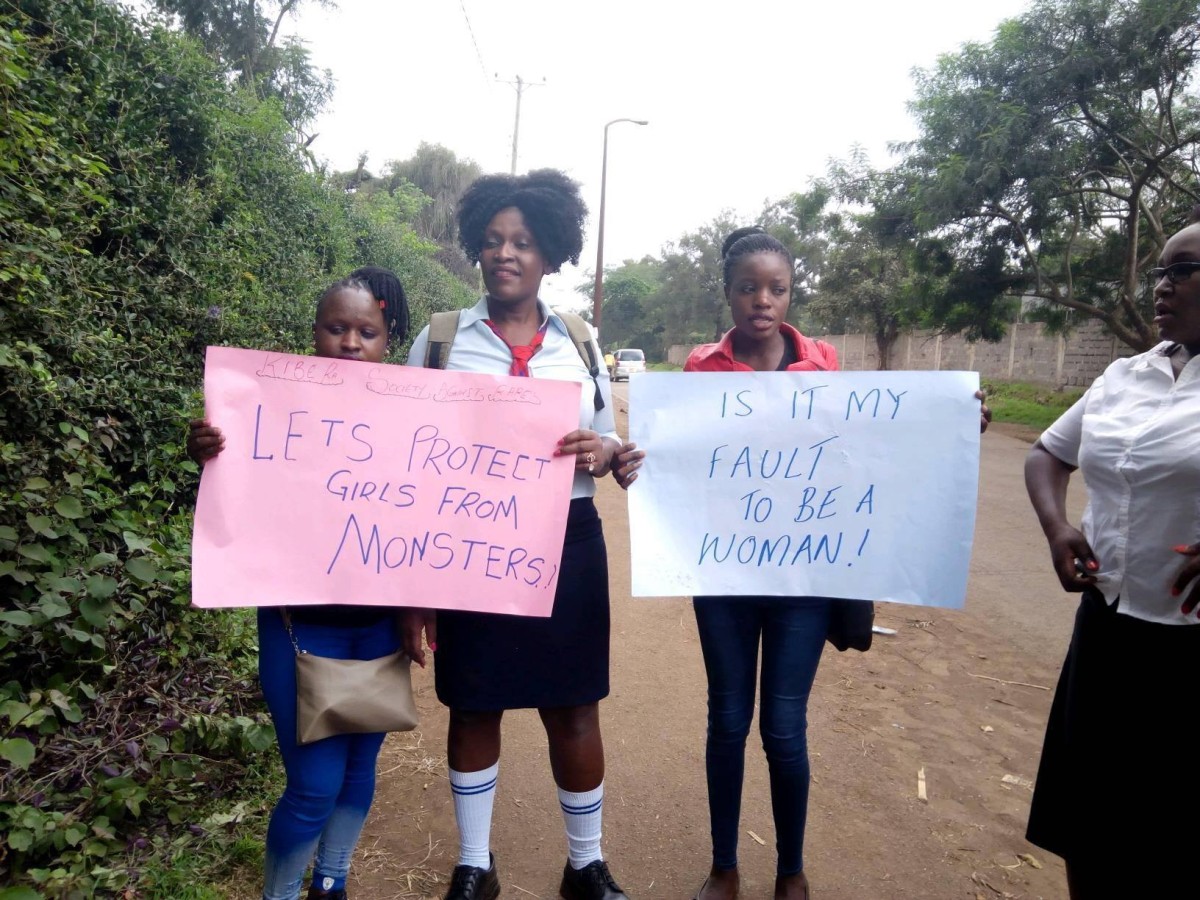16 Days of Activism Against Gender-Based Violence: creating awareness for sextortion for water
Warning: this article contains reference to (sexual) violence
Violence against women and girls remains the most pervasive human rights violation in the world, affecting more than 1 in 3 women—a figure that has remained largely unchanged over the last decade.
16 Days of Activism Against Gender-Based Violence
Global crises and conflicts further intensify violence against women and girls and, for instance climate change is aggravating all types of gender-based violence against women and girls. That's why on the 25th of December the 16 Days of Activism Against Gender-Based Violence start: 16 days of global action against gender-based violence. Simavi also participates in this international campaign by drawing attention to sexual harassment, coercion and violence due to a lack of access to water and sanitation.
Facts
Globally, 1 in 3 women experience physical and/or sexual violence in their lifetime, mostly by an intimate partner
1 in 4 people lack safely managed drinking water
In 8 of 10 households women and girls are responsible for collecting water with water off premises
Water as source of constant fear, trauma and psychological distress
In Kenya, violence against women has taken a very extreme form: women and girls are pressured to have sex in exchange for a basic necessity: water. In the informal settlement of Kibera, water is a scarce commodity and the water points are in the hands of ruthless cartels who are purely interested in making a profit. As a result, women and girls stand in long queues for hours because there is simply not enough or no access to water or a safe toilet.
They also risk (sexual) violence, coercion and intimidation. Many boys who man the water points and collect the money abuse their position of power. For example, they only open the tap for girls they know or who have already done them certain favors. Coming home without water is not an option. Your mother then immediately sends you away to look for water elsewhere, even if it is evening. This makes women extra vulnerable. Girls feel pressured to fall into such extreme behavior as having sex for water.
Insecurity in toilets and showers is another major problem. In Kibera, most houses do not have a toilet or shower, which means that girls are forced to use public toilets and showers, which they also have to pay for. Girls are regularly confronted with sexual harassment at these toilets by the boys who receive the money for the toilets and showers. Thus, water has become a constant source of fear, trauma and psychological distress.

Cecilia Ayot won't give up until sex for water a thing of the past
Kenyan politician Cecilia Ayot is one of the brave women standing up for women's rights and safety and she decided to fight for the rights of her constituents by taking on the water cartels that perpetuate this atrocity. Unfortunately, this cost her dearly; she lost her political seat. Nicera Wanjiru from Vice Versa interviewed her for Simavi. Read how Cecilia promises not to give up until sex in exchange for water is a thing of the past in the full interview on our site.
Simavi and violence in the context of water and sanitation
Women and girls should be able to enjoy their right to water without having to fear for either their physical or emotional well-being. In most informal settlements, they are forced to leave their houses in the darkest hour of the night, walk long distances and queue for hours at the few available water points, just to get this precious commodity.
Unfortunately, these places are managed by men and boys with an unhealthy sense of power over them, and they proceed to ask for sexual favours from them in exchange for water. Keep in mind that the distance between their homes and these places is not that safe, either during the day or at night. These are all risk factors for women and girls; the risk of being harassed, raped, abducted, or pressured into having sex for water.
Simavi has been raising awareness of this problem by performing research in Uganda, Bangladesh and Nepal to provide solid evidence on the underlying causes of violence against women and girls in the context of water and sanitation. Prevention is a structural element of all the programmes that they work on. They ensure this by; Making sure that facilities and services are safe to use for women, providing a safe space for them to discuss their challenges, discussing gender roles at household and community levels, and making sure that girls can say ‘no’ to sextortion.
Speak out against violence
Violence against women is pervasive, but it’s not inevitable—unless we stay silent. Taboos around gender-based violence provide perpetrators with impunity and prevent women and girls from getting the help they need: less than 40 per cent of women who experience violence seek help of any sort. Let these women and girls know you stand with them. For example, strengthen their voices by sharing (our) stories on social media with #16Days or check out this post from the United Nations to find out what else you can do.

